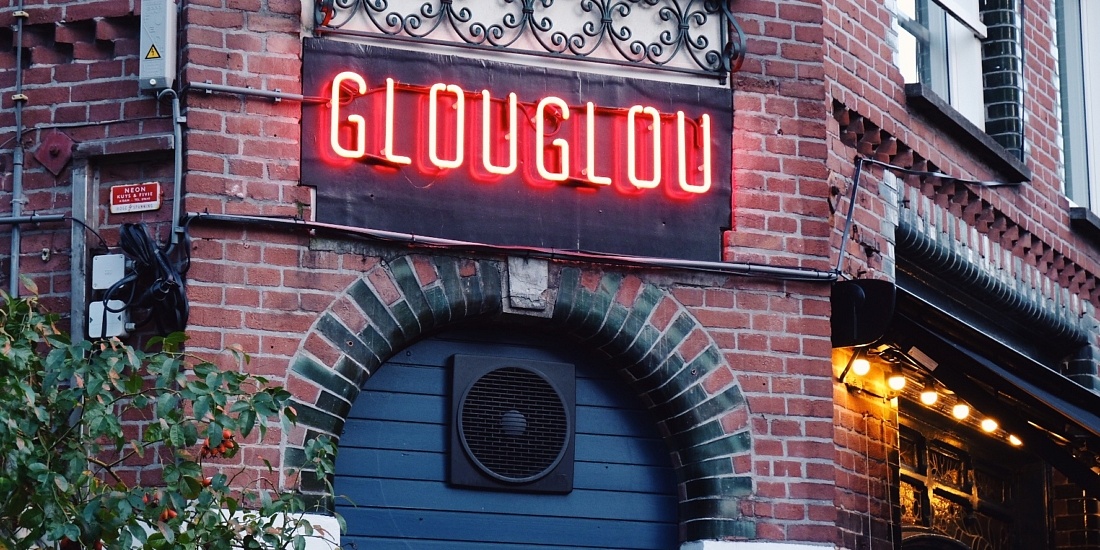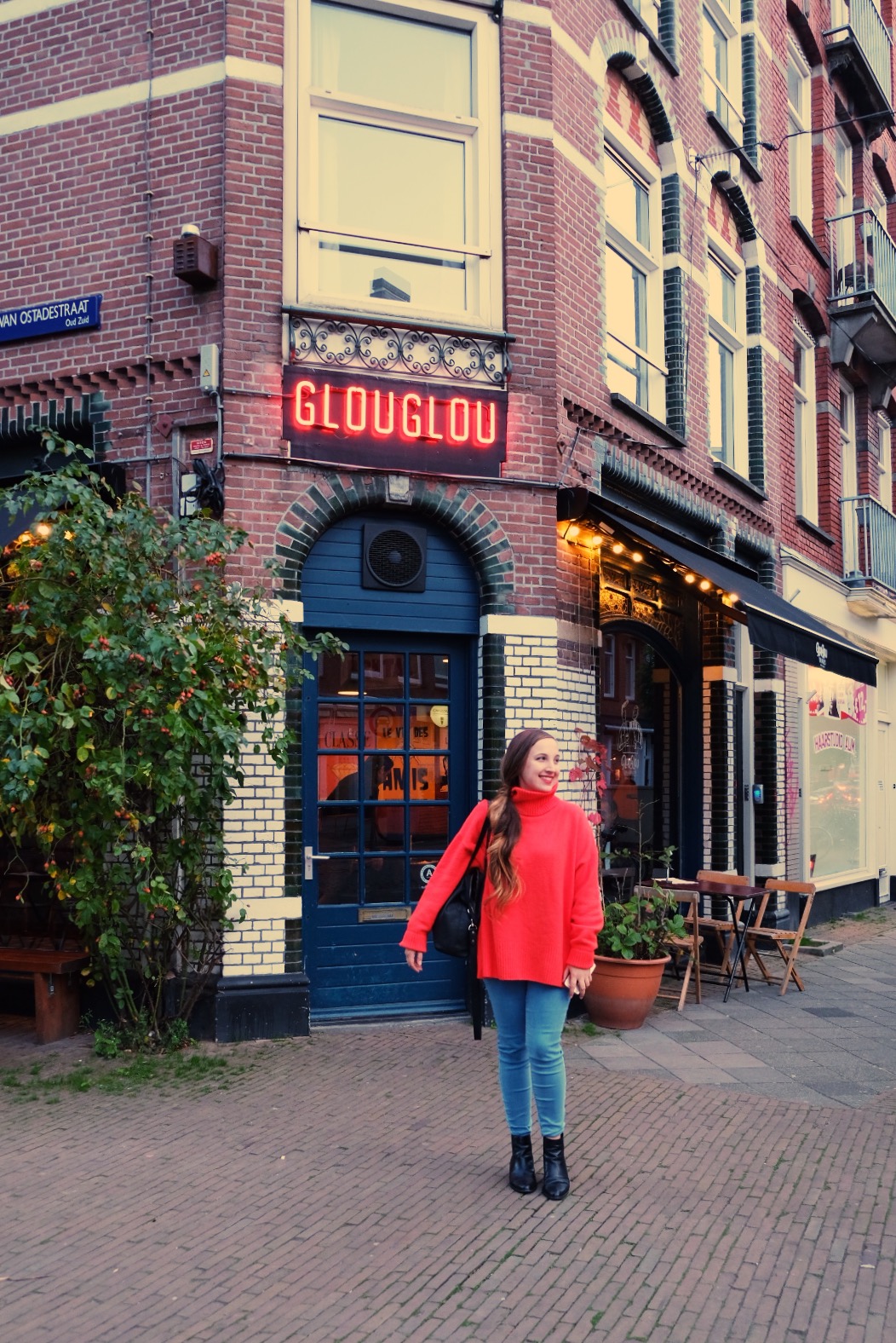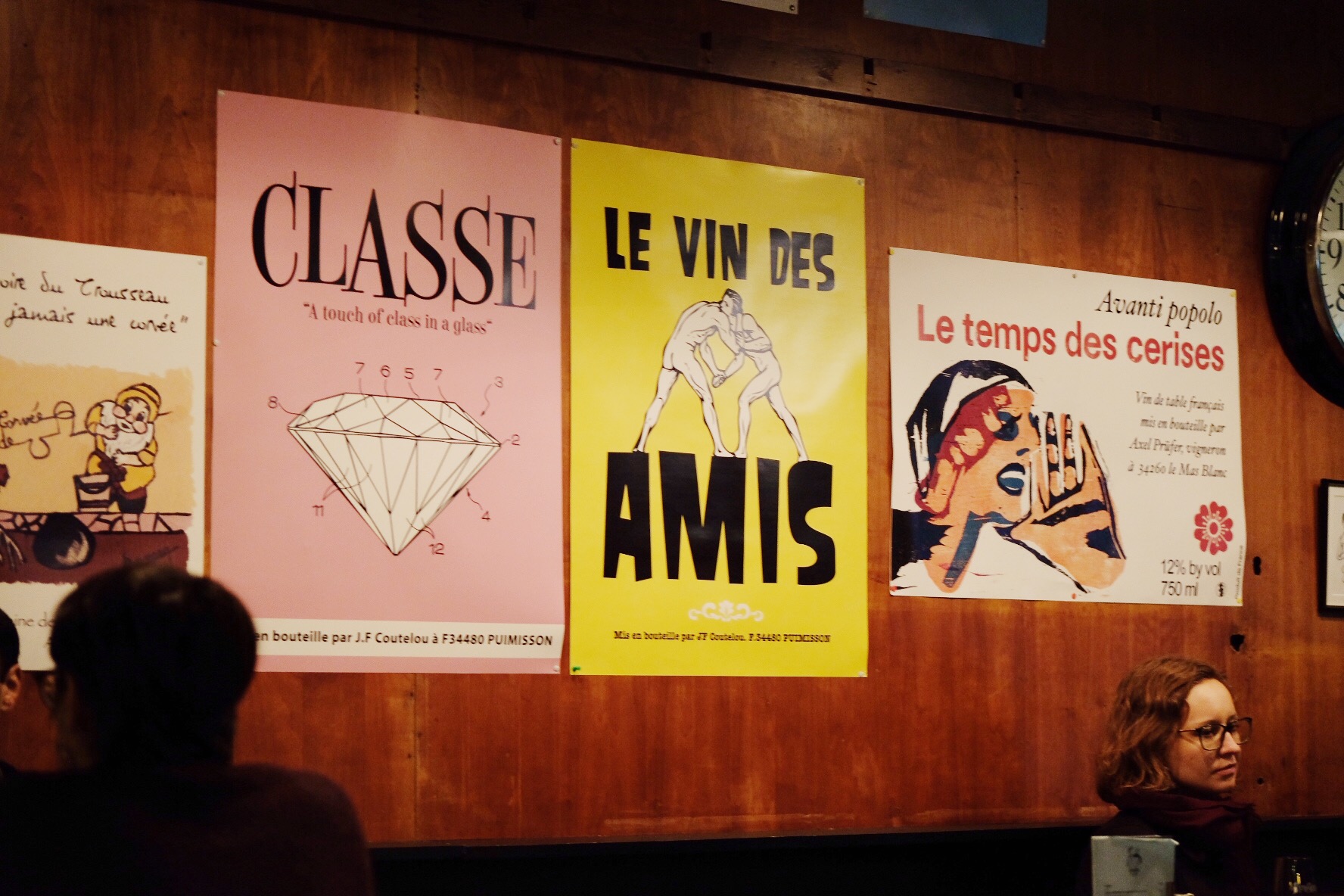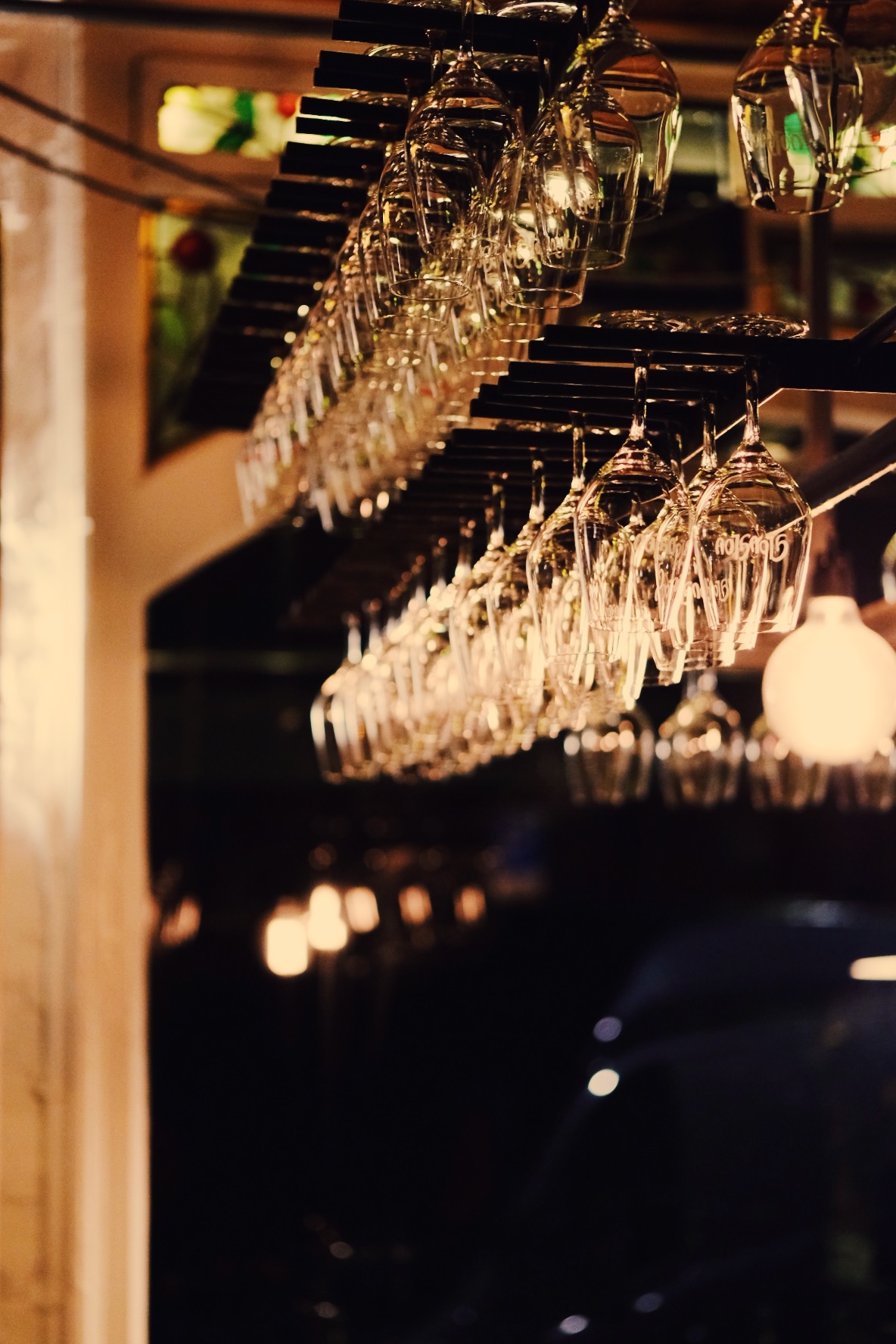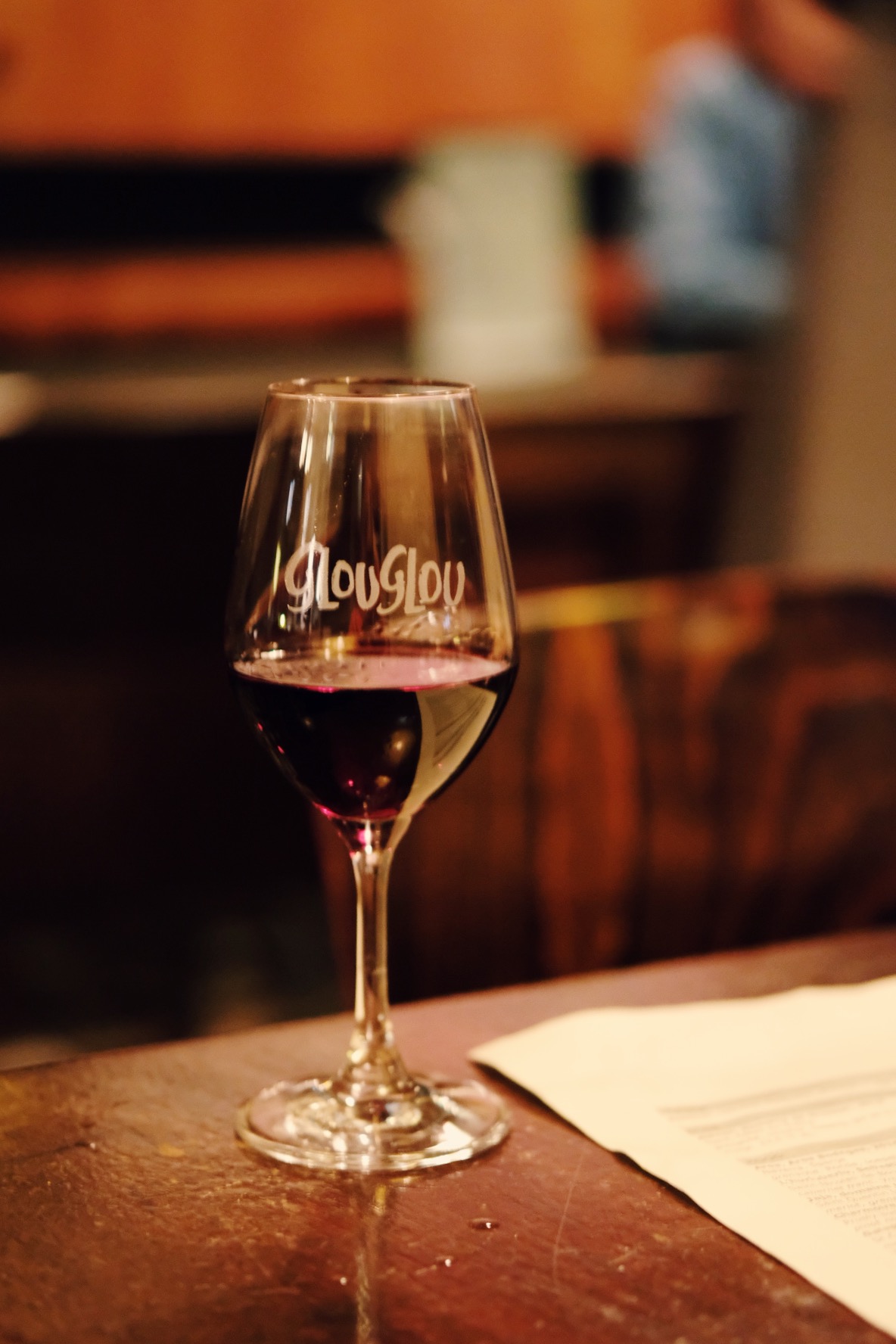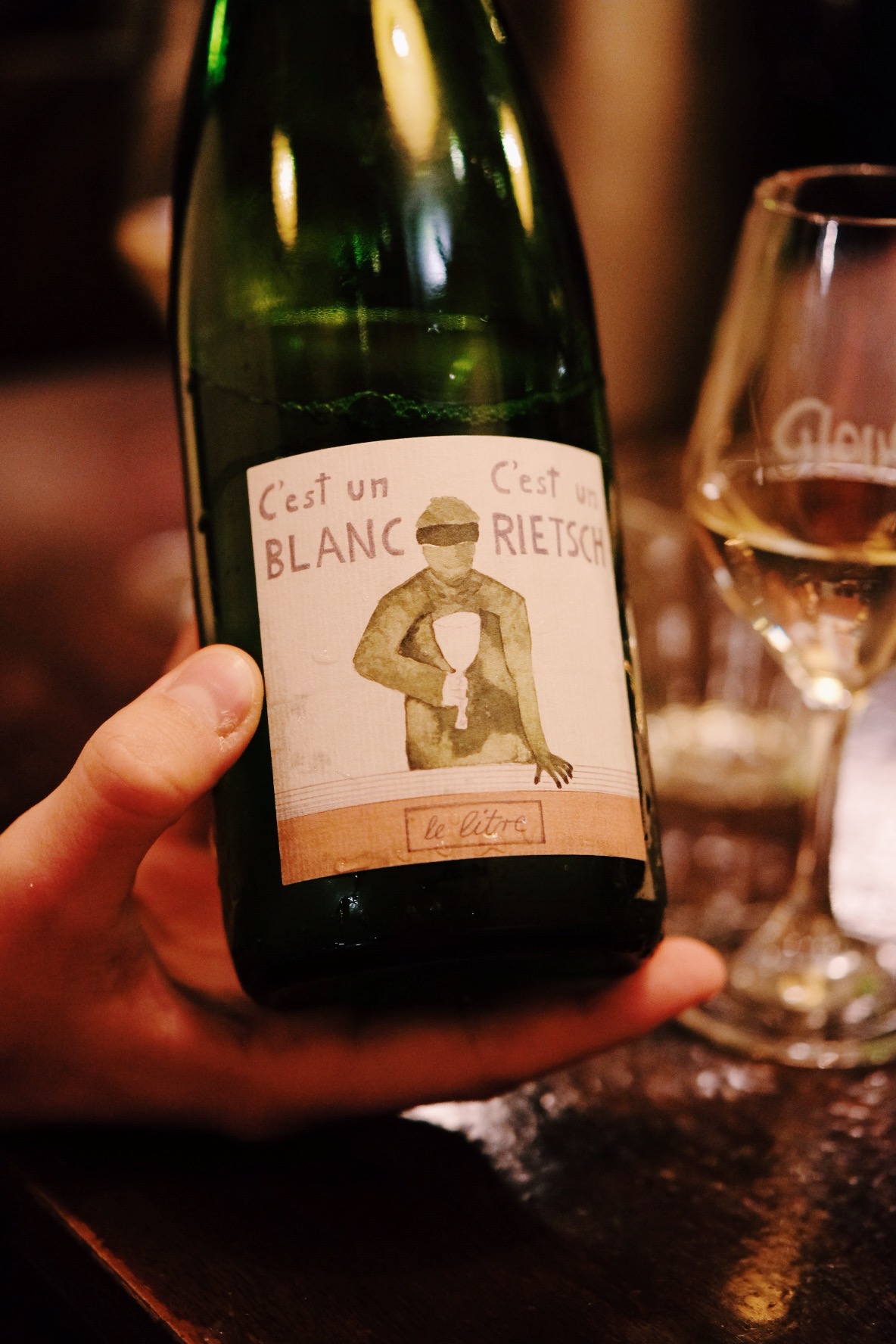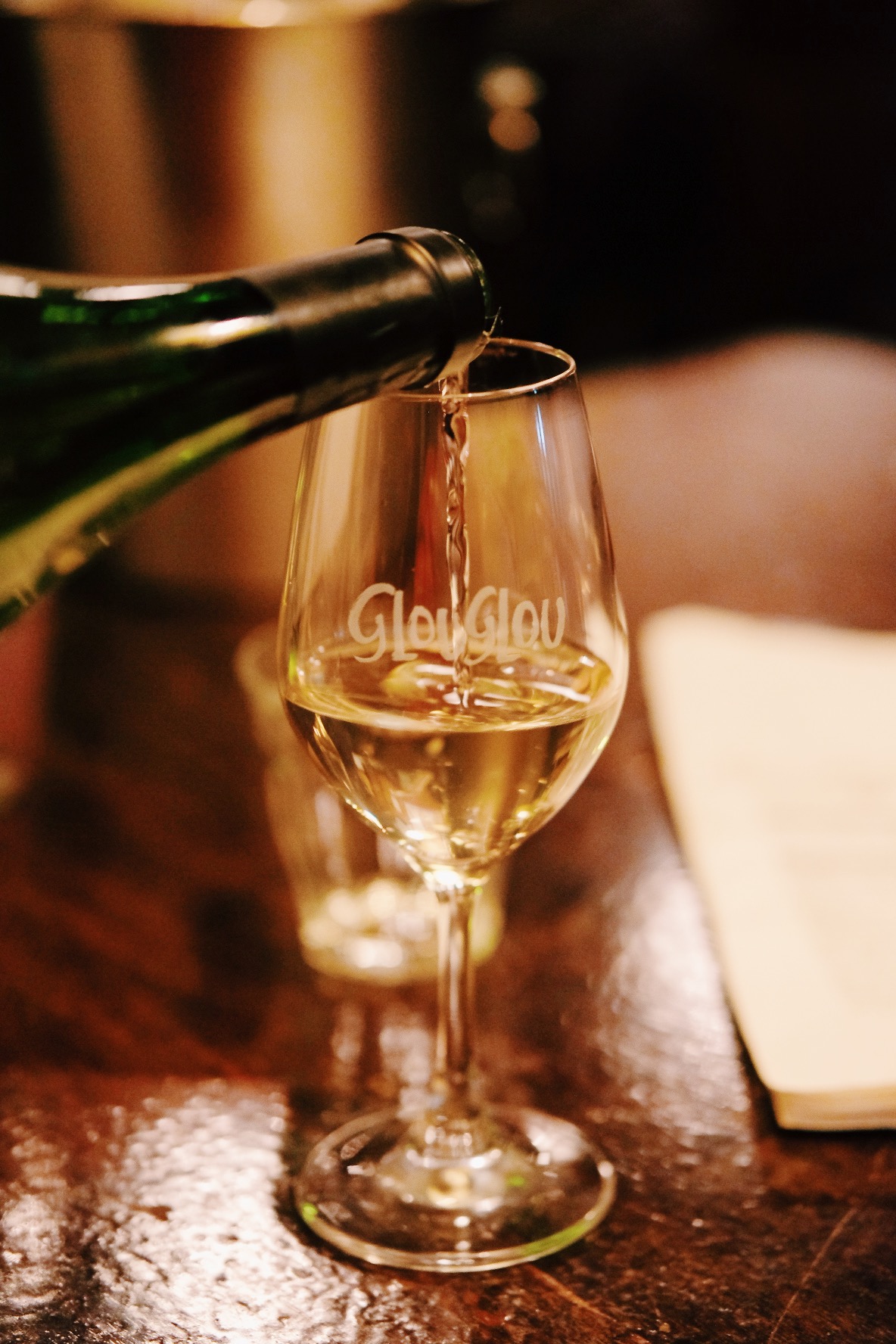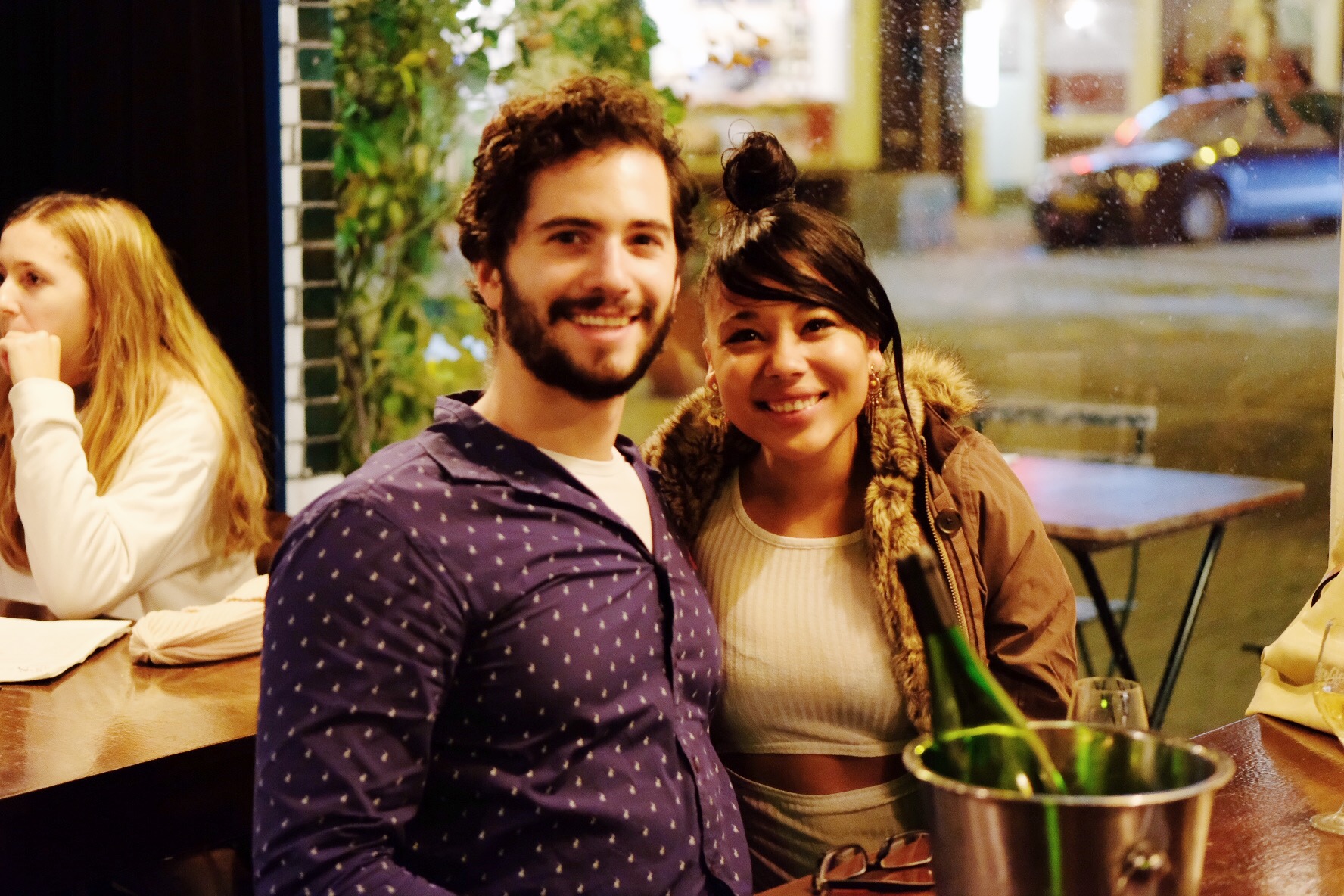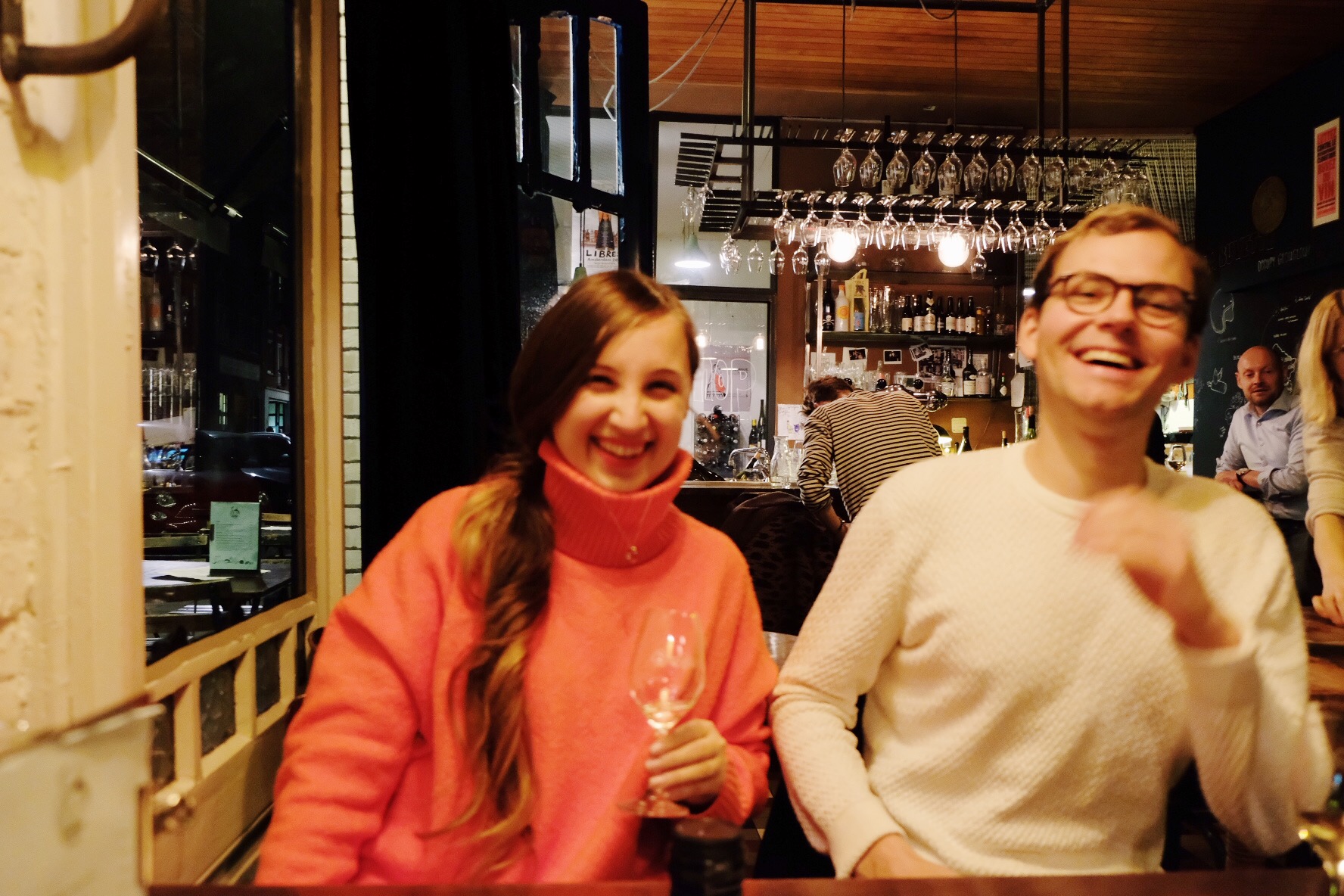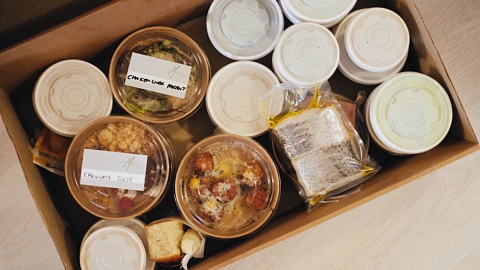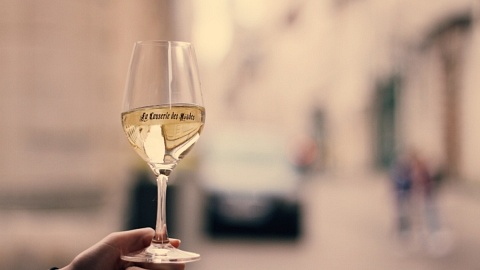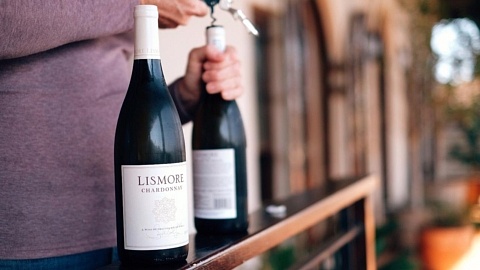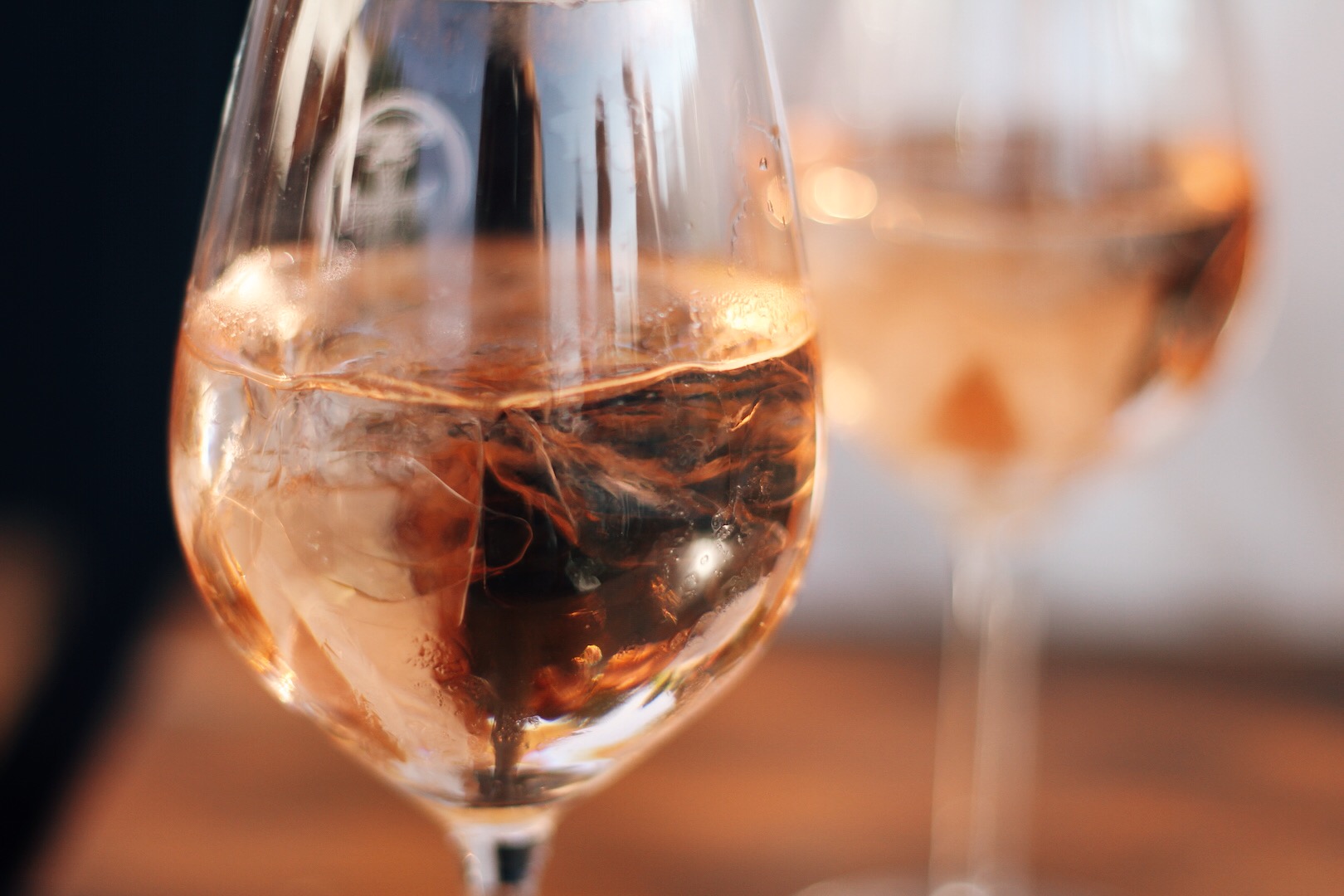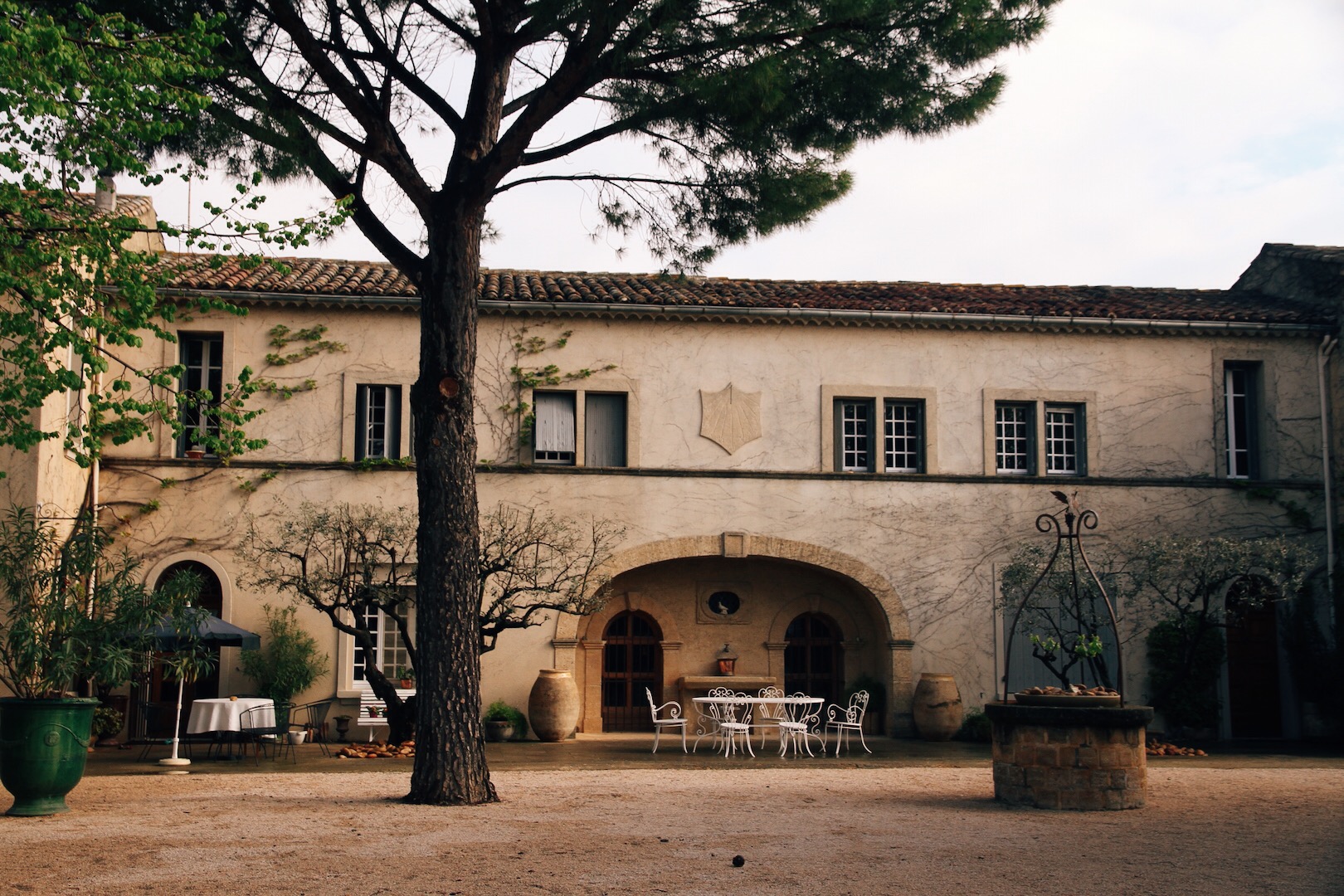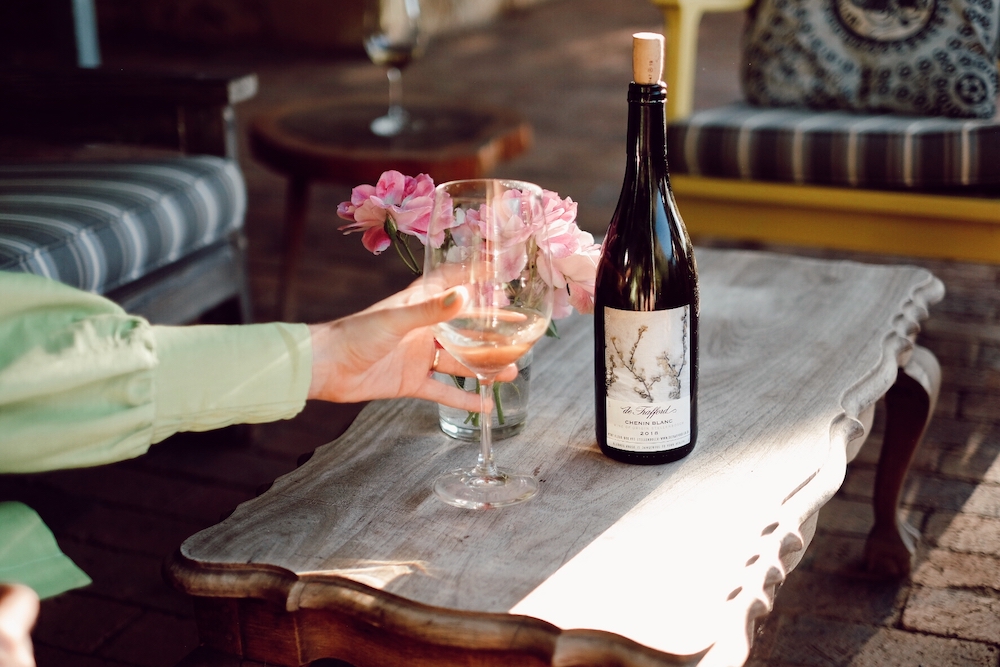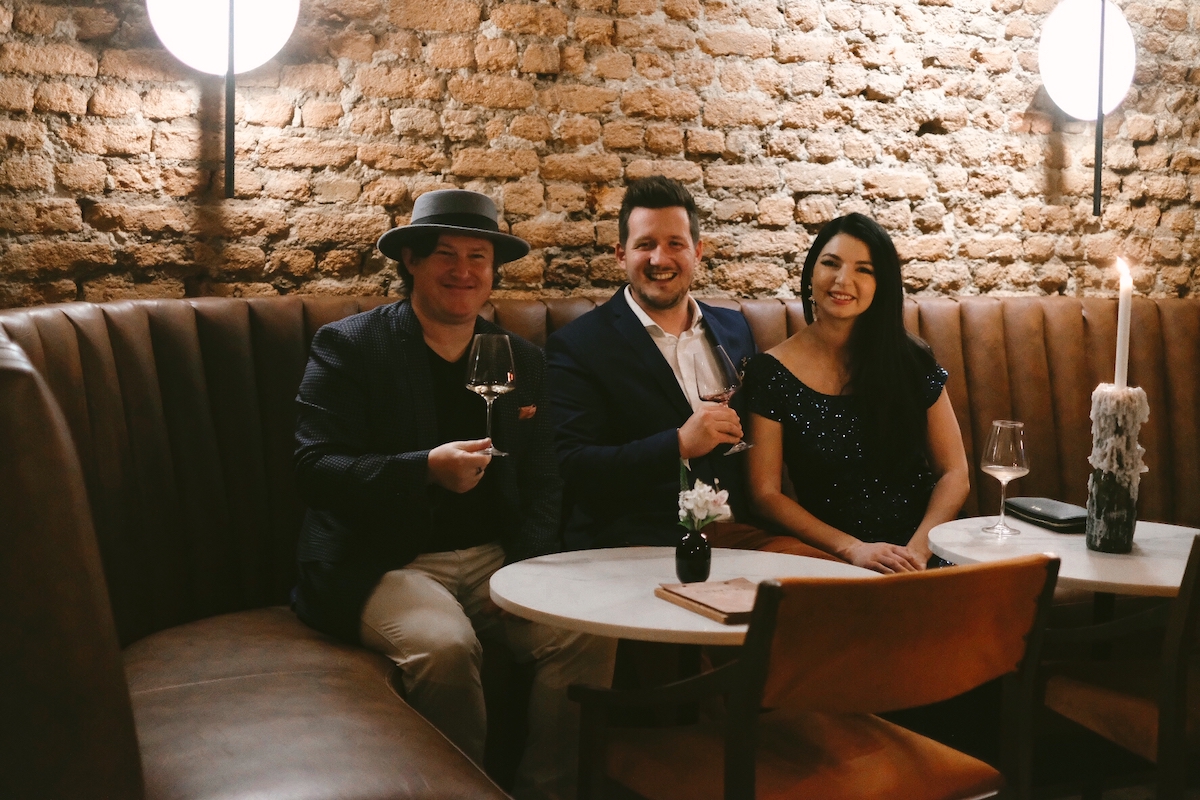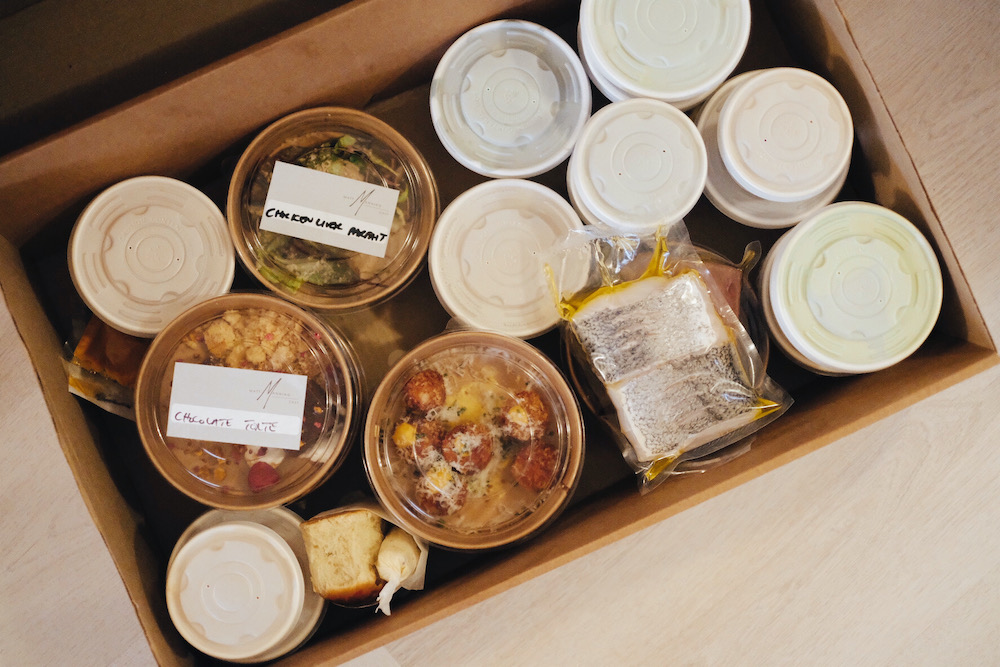How could we not eventually visit the wine bar in Amsterdam that shares our blog name? Glouglou wine bar, located in one of the least touristy neighbourhoods of Amsterdam, de Pijp, is a wine bar focusing on natural wines. But aren’t all wines natural? Well, kinda, it’s not a clearly defined concept. We’ve covered it here. But to quote the blurb on the wine list at Glouglou – “Our winegrowers work without pesticides, herbicides or artificial fertilizers and add no industrial yeast and hardly if any sulphur. Since our wines are not filtered nor cleared, they are quite outspoken and can be cloudy.”
Okay, got it. But why the name Glouglou? Well, try to say it out loud, in your best French accent – gloo-gloo – and you’ll come close to the ‘glug-glug’ sound that wine makes when splashing down your throat. As we’ve said before, to us, Glou Glou means wines that are unpretentious, but still go down a treat, a.k.a. wine for real human beings. For many wine lovers, this equates to natural wine, as defined above. So the theory should be, then, that natural wine is down to earth, not too complicated yet still well made and delicious, right? Well, yes, that’s the theory, but not always how it pans out. Let’s face it, natural wine as a category is pretty niche. You won’t find it on a supermarket shelf, it’s often (but not always) more expensive than conventional wine, and of all the wine categories it’s the one that hipsters flock to like pigeons to an old croissant.
It’s been a year since we launched our blog in its current format, and our goal has always been to share our love and knowledge of wine in a way that’s fun, friendly and inclusive. So visiting Glouglou in Amsterdam with three friends – one an experienced sommelier, and the other two working in totally different industries – was a good test to see if natural wine can fit into our Glou Glou philosophy.
When we arrived, the waiter presented us with quite a hefty wine list of what seemed like hundreds of wines. I have to admit, I was pretty intimidated. Fortunately we had Patrik with us, our resident sommelier, who quickly got to work in making a selection. When we’d narrowed it down, our helpful waiter offered us a taste of our choice before committing. This was great, as with natural wine there’s more of a risk the bottle might be off. The wine we was a young, juicy, Italian red blend. Non-wine-industry friend #1, Tamzon (she’s a mineralogist) , didn’t like it at all. She said that it tasted like juice, not wine. The waiter was not at all offended, and went on to offer her a more structured, full-bodied Côtes du Rhône (2013 Domaine Viret Renaissance). Much better!
While Patrik and I happily quaffed the ‘juice wine’ (2015 La Stoppa Trebbiolo), I felt happy that Tamzon had stood up for her preferences. In that moment, I was reminded that you don’t have to be a wine expert to know whether you do or don’t like something. At the end of the day, if you’re spending your hard-earned cash on a glass or bottle of wine, you should receive something that gives you pleasure, whatever that means for you.
For some, that pleasure comes from experiencing new tastes and sensations, or the knowledge that what you’re drinking has been made with minimal intervention. Or perhaps even the thrill of the risk that the wine might be totally funky or weird. But for others, the pleasure of wine is simply to drink something that tastes delicious, and makes you feel good. And I think both are valid. Which is why by the time Tamzon’s lovely fiancé Ronen joined us at Glouglou, we were happily moving on to a bottle of C’est un Blanc from Rietsch, a notable natural wine producer from Alsace. Delicious… and interesting, too!
Natural wine may not be for everyone, but our idea of “glou-glou”, which is broader than just natural wine, certainly is. After our true “Glou Glou” experience at Glouglou, we would happily recommend it to anyone!



